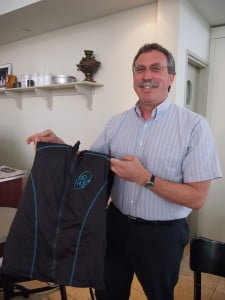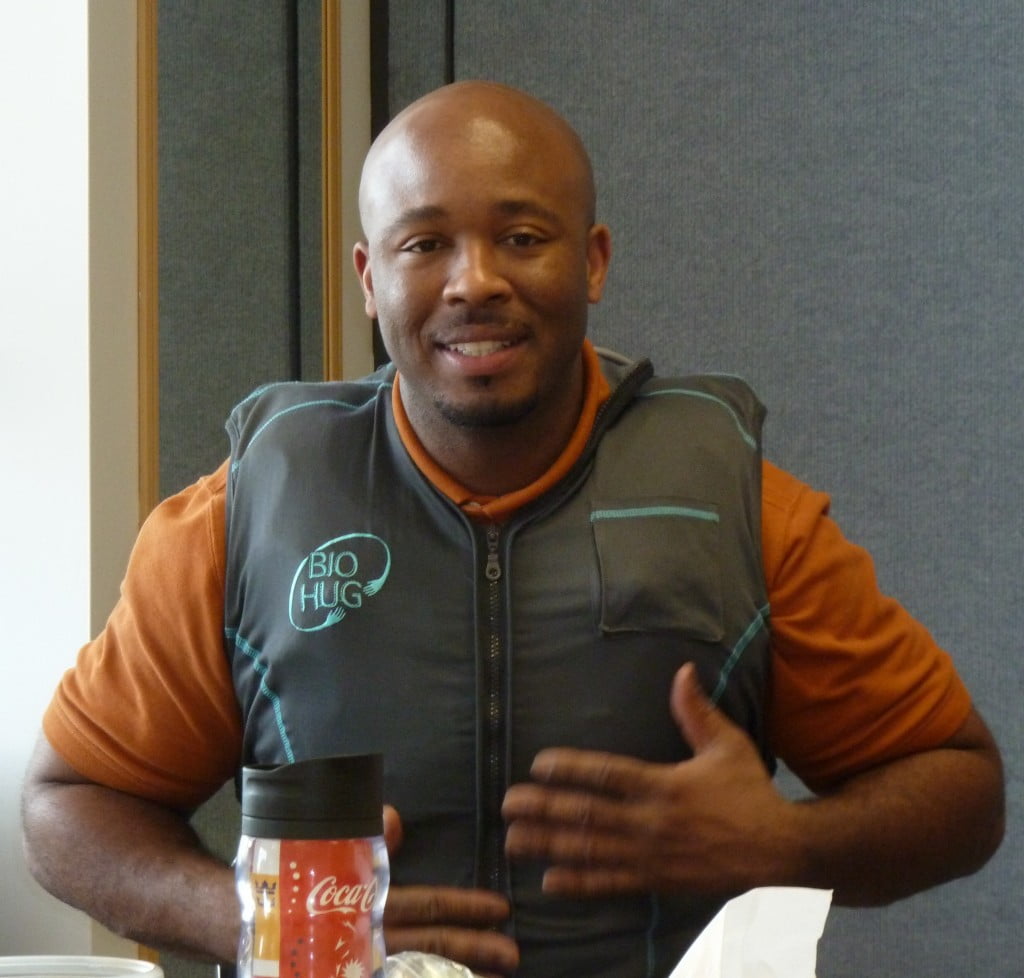A hug is something so simple and comforting. According to some, hugs are not only an expression of affection, but also great stress-relievers. But for people with autism, human touch is often hard to bear.
That is why BioHug Technologies has come up with a vest that can “hug” people with conditions such as autism, attention deficit disorder, hyperactivity, and anxiety.
Raphael Rembrand, an engineer and the father of an autistic son, was the brain behind the idea. The vest was a byproduct of Rembrand’s other research into the mechanisms of autism, and his vision to create something that can be calming and does not require medication.
Related articles
- Let’s Relax: Researchers Show Stress Leads To Increase In Autoimmune Diseases
- Ben Gurion University And Cincinnati Hospital Fund Novel Treatments For Children
Product development and testing for the vest began in 2007, with the help of Doctor Eynat Gal from Haifa University, ALUT (the Israeli Society for Autistic Children), CEO Andrew Schiffmiller, and grants from the Office of Chief Scientist. After five long years, the product was finally released in mid-2012.
Simulating an actual hug
Andrew Schiffmiller, CEO of BioHug Technologies, tells NoCamels: “Any kind of physiological relaxation [eases measurements such as] blood pressure, respiration, and stress as well.” The vest applies compression to different areas of the back and shoulders, helping users to relax.
The vest integrates a lightweight air compressor, single-board computer, and tiny valves that feed compressed air bubbles underneath the lining of the cotton. Unlike other deep pressure devices that use constant pressure, the location and duration of pressure is constantly varied, so the effect lasts longer. Schiffmiller explains that the problem with constant pressure is that the human body stops paying attention to it after a while.
Also, while most stress relief devices have to be pumped by hand, the BioHug vest works automatically. The vest comes with a rechargeable battery that lasts up to four hours.
A hug to replace self-abuse
 Since its launch, the vest has been used in special schools in Israel and the US, and by occupational therapists in the UK and Canada. Individuals have also given positive testimonials; in one special needs school in Jerusalem, BioHug reports that one woman with severe autism stopped self-abusing and became calmer after using the vest.
Since its launch, the vest has been used in special schools in Israel and the US, and by occupational therapists in the UK and Canada. Individuals have also given positive testimonials; in one special needs school in Jerusalem, BioHug reports that one woman with severe autism stopped self-abusing and became calmer after using the vest.
Sign up for our free weekly newsletter
SubscribeHowever, it is important to understand that while the vest may help temporarily relieve stress, if the cause of anxiety is not removed from the immediate environment of the wearer, stress could easily be triggered again.
The vest does not apply a massage-like sensation. According to Schiffmiller, the vest “applies just enough pressure to cause this relaxation response in the body, but we’re not trying to break up tight muscles.”
Different vests for different markets
While initial testing was done on people aged 18 and above, BioHug is now looking to make models for younger children. This means that the vests have to be much smaller, and lighter.
The company is also researching a professional model that would contain sensors to monitor the stress levels of users, allowing the vest to react accordingly. In Tel Aviv’s Sourasky Medical Center, clinical trials will be held for patients with chronic pain, to see if reduction in stress levels leads to a different perception of pain.
Another area where systematic testing is being done is post-trauma. After the November 2012 rocket attacks in southern Israel, BioHug teamed up with OneFamily, which helps victims of terror, to use the vest as a calming intervention for those suffering post-traumatic stress symptoms.
“The more people we help – the cheaper it will get”
Schiffmiller tells NoCamels that BioHug’s future plans include taking the vest to a broader market. The vest is now in a market that is between medical and healthcare, and manufacturing in very small quantities makes it expensive. At this stage, BioHug is still figuring out the right price, as it observes how the market reacts to the product.
The vest is sold in Israel and US, and individuals who want to purchase it can place an order online. Schiffmiller notes: “if we are trying to help people with certain disabilities, and it becomes a mass-market product, the price comes down and it can help more people.”
Related posts

Editors’ & Readers’ Choice: 10 Favorite NoCamels Articles

Forward Facing: What Does The Future Hold For Israeli High-Tech?

Impact Innovation: Israeli Startups That Could Shape Our Future




Facebook comments